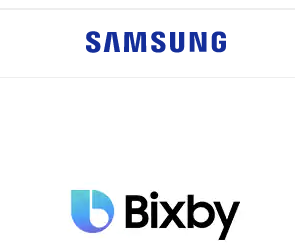-
Notifications
You must be signed in to change notification settings - Fork 640
This issue was moved to a discussion.
You can continue the conversation there. Go to discussion →
New issue
Have a question about this project? Sign up for a free GitHub account to open an issue and contact its maintainers and the community.
By clicking “Sign up for GitHub”, you agree to our terms of service and privacy statement. We’ll occasionally send you account related emails.
Already on GitHub? Sign in to your account
Who uses objection.js in production? #1069
Comments
|
Companies that I am aware of: |
|
We adopted it as our de facto SQL ORM at Big Room Studios (you can probably even spot an objection model on the homepage!), and our development team has only been very happy with it, having used a variety of ORMs. The size of the community is actually very comfortable—it's large enough that you have active participation on issues, good community support in gitter, and regular contributions, but small enough that maintainers have been able to effectively handle issues without generating a massive backlog. It's also built upon knex (and there's overlap in contributors between objection and knex), which is very widely used. Lastly, it's also the officially supported ORM of @hapipal. |
|
Note that Objection.js is NOT an ORM in a sense you are used to in Hibernate world - it is far more lightweight, it would be more correct to think of it as a query builder that also takes care of relation/upsertion/validation logic for you. It doesn't have out-of-the-box locking. It doesn't have transparent lazy loading. It doesn't have DB schema generation from models. If you need all of these - TypeORM or Sequelize would be a better fit for you, but if you don't need them or are OK with doing them yourself - Objection.js is by far a better option. It is predictable and never gets into your way. |
|
Objection has been used in various (10 -20) projects at Vincit even before it was released as open source. I can't give any names as I'm not sure which customers are public references for Vincit (I don't work there anymore). Maybe @elhigu can provide some kind of list? |
I’m trying to get at least current number of companies + sizes in case we cannot give the names. |
|
@jzimmek you might also want to ask this on the node subreddit: reddit.com/r/node There have been many mentions of objection on there that's how I first found out about it. |
|
We're (company of ~30+) using it pretty heavily since about a year now. objection.js is really pleasent to use and I believe that everyone on our team (~10+) feels very comfortable with it. Documentation is top-notch and the community, even though it might not be as big as others, is extremely helpful. Also, the codebase itself is pretty clear and relatively easy to understand in comparison to other libs. (thank you - to the creators and maintainers of objection.js - you make our work a lot more fun) |
|
Vincit (software contractor company of ~500 empoyees) is usually using objection.js for Node projects, which needs an ORM. I'm still working on rough number of our clients who are using it (I haven't been at the office lately and I don't have access to check out client data myself). |
|
We're a small startup in Asia - been using objection since we first developed our product. |
|
Paul Jensen - London Node User Group |
|
That would be nice link to add to readme or something :) |
|
We do! We're a health tech company doing online doctor visits in the US: https://www.heydoctor.co/ |
|
|
|
I recently rewrote a version of the board game Risk using objection. I can't even begin to describe how much simpler it was to use objection.js than the older java bean code. I probably have 70% less code. And when comparing objection to sequelize -- why on earth would you subject yourself to the added complexity of that tool? Seriously, sequelize is bloated. And don't even get me started about sails and typeorm. I was about to give up on using node.js as the backend for the game, and then I found objection.js. Bookshelf is a step in the right direction, but objection seems like a refactored, simplified bookshelf. The game is going to be released as a Steam Early Release here in the next week: https://store.steampowered.com/app/952090/Grand_Strategy/ https://play.google.com/store/apps/details?id=org.grandstrategy.client |
|
We're a Portuguese tech company (company of ~30) that proudly uses |
|
Ethos Technologies, Inc. - We offer term life insurance for citizens and residents in the U.S. When we migrated from MongoDB to Postgres, we tried several ORMs and Objection.js stood out to us the most - it is one of the most solid, well-architected packages in our stack - can't recommend it enough! |
|
I am ! Though you can only see the front-end right now, the back-end being not polished enough. |
|
We do at Social Native. |
|
We, DPOrganizer, are a Swedish startup with about ~20 developers. We choose
|
|
We've been using it at Cazana for 2+ years. |
|
when i was at https://mycujoo.tv we started experimenting with objection in late 2016. it went to production in early 2017 (i no longer work there). it's used in one of the largest backend services (thousands of reqs/s) |
|
As a personal experience in a side project when I searched what ORM should i use, I Find the most popular one which is sequelize, after about a month of working I suffered a lot, its documentation isn't clear, strange way of coding (at least for me). |
|
At cioplenu we also switched from bookshelf to objection.js in the very early stages of our product. We are still a fairly small company but we have been very happy with that choice. The clear and concise design with excellent support for ES6 or Typescript, the option to easily fall back to knex when needed, the great compatibility with PosgreSQL, the great community and documentation really sets it apart. |
|
At Stylisted, Objection powers our entire API.
There's a lot more, but the point is this: the design of the library is elegant and intuitive. I've found it very easy to write code that I think will work based on the primitives provided and it just does. The source code is also easy to read, modify, and test. If you've come from Bookshelf, as we did, you'll know that none of those things hold true. Objection gets lots of little things right by separating query building, data modeling, and validation, and doesn't encourage Rails-y patterns like polymorphism. This really reduces the O/R impedance mismatch that you experience from Bookshelf and many other ORMs. |
|
We use it for most of our node.js projects at Viv Labs (we're a Samsung company). We write the Bixby AI assistant found in many Samsung devices, like the Galaxy phones. Objection.js is heavily used for https://bixbydevelopers.com, a place where you can learn how to build extensions to Bixby called "Capsules", (much like Alexa skills). Since we use GraphQL, the most powerful feature that objection offers for this is the I really like that it uses Another plus is how it's decoupled from the DBAL (database abstraction layer), where you use Overall, I recommend it to everyone who is looking for a lightweight ORM. |
|
I use Objection since version 1.4 on https://checklyhq.com, a monitoring SaaS. I use it for the reasons mentioned above. Feel free to use the logo or screenshot. |
|
We use it in a crowd sourced mapping application called Map Our Borders, it's perfect for our needs. BIG Thanks! |
|
I'm currently working on one of Autodesk's project and they are using this amazing package. Since I used this tool is pretty easy to understand and use. |
|
we're using Objection at substack! |
|
We're using Objection at Pinkaloo 💓 |
|
We're using Objection at Remotehour with GraphQL. |
|
We're using objection.js at Craftcloud |
|
We're using Objection at Blush and a couple other private projects. |
|
Proudly using it too at CitizenPlane! We're ~20+ company, 7 techs, Objection in production on all services that need to query our db. |
|
Using Objection at Pizza Cartel and eggwp! |
|
I am connected with a company who is using it for VIOP. |
|
We use objection.js on Wormhole. |
|
Our six person startup, Rescomms, has been using Objection.js for its whole three year existence. Currently we are serving some 0,5M heavy GraphQL queries/day. I must say having a proper query builder that can adapt to the varying GraphQL payloads and inputs has solved a lot of problems to us. Until you face the problem of adapting to arbitrary inputs and outputs, you might not know you need a query builder. |
|
We use objection.js on EasyCall |
|
We're using it at Truepic! ❤️ |
|
We use it at Lessonface. |
|
We use it at Inarix! 🚀 |
|
We use it at Salesforce, thank you for this amazing ORM library! ❤️ |
|
I'm using it within https://github.com/pageboard/server and it's been a successful experience. |
|
Our company used it for https://zencare.co and https://hybridstrengthcoach.com |
|
We use it for different projects in Valiulab.com : |
|
I am using the Objection.js/Knex.js/DBML with postgres to handle the backend APIs. especially, really good match with Graphql as well. I am using this library since 2018 |
|
To everybody in this thread, there are some important developments concerning the library, see #2335 |
|
And I failed to mention this so far, but we're using it at Lineto.com and are very happy with it. |
Just to give a quick TLDR to anyone watching this thread, koskimas (current maintainer) is leaving the project and looking for maintainers to take over. If you have enjoyed the library and would like to:
Please leave a comment on that thread |
This issue was moved to a discussion.
You can continue the conversation there. Go to discussion →










Hi there, I am currently evaluating a bunch of orm-a-like libraries for an upcoming project.
I almost gave up after digging deeper into sequelize and typeorm .
Having a PostgreSQL, java (hibernate) and ruby (ar/sequel) background, I was kinda disappointed by nodejs orm libraries. They are not bad, but feel very immature in comparison to java/ruby world.
Then, by accident, I found objectionjs while reading the knexjs README.
Objectionjs is exactly my way of thinking. Pragmatic but not to abstract. Sequelize/Typeorm might have more github stars/forks, but comparing them API- as well as Issue- and feature-wise, objectionjs feels like a way better fit to me (and probably others who also have a relational sql db background).
It deserves more traction and I am asking myself - why is objectionjs not more popular? And who is actually using it in production?
I know it sounds stupid, but is there some who-uses-it listing I can show to an IT decision maker?
Nevertheless, you did an awesome job and built a great library!
The text was updated successfully, but these errors were encountered: